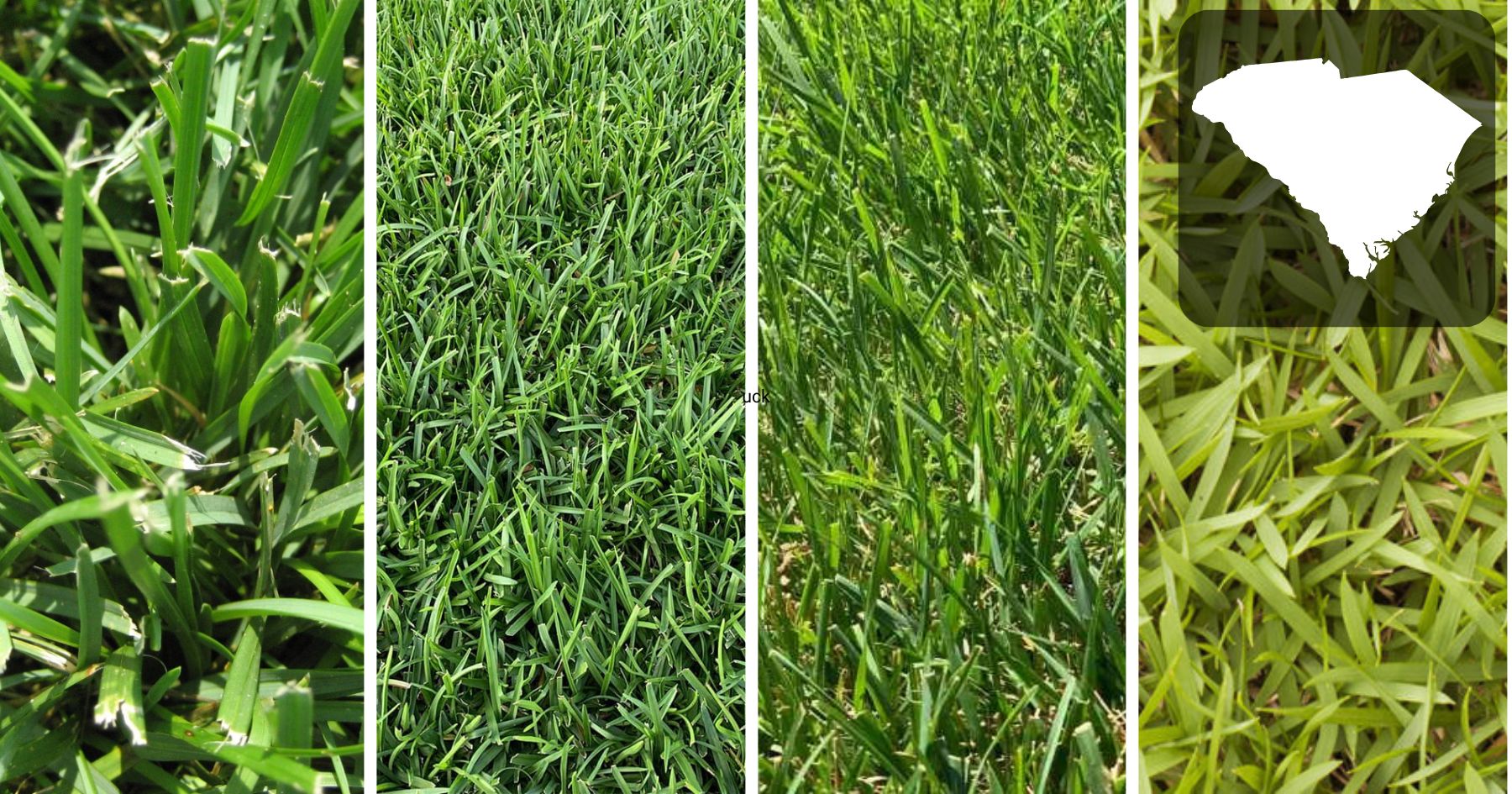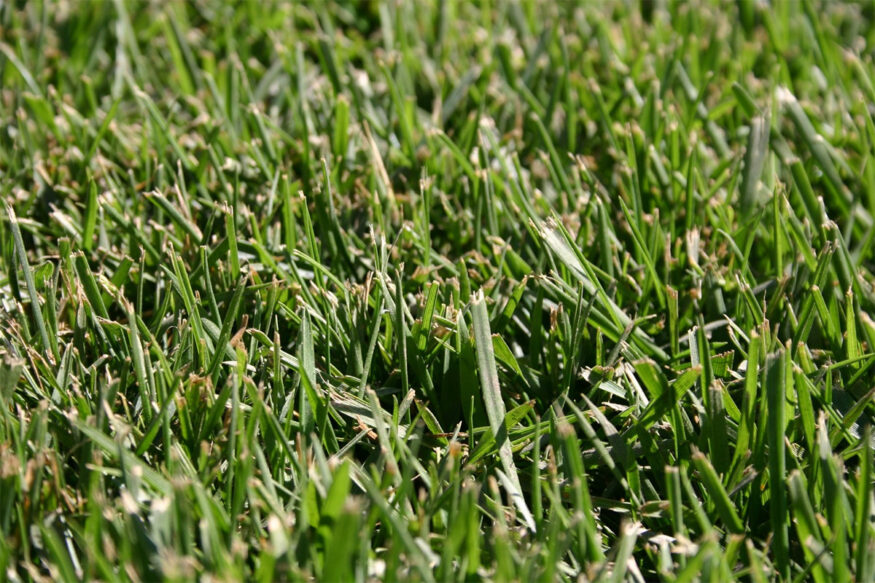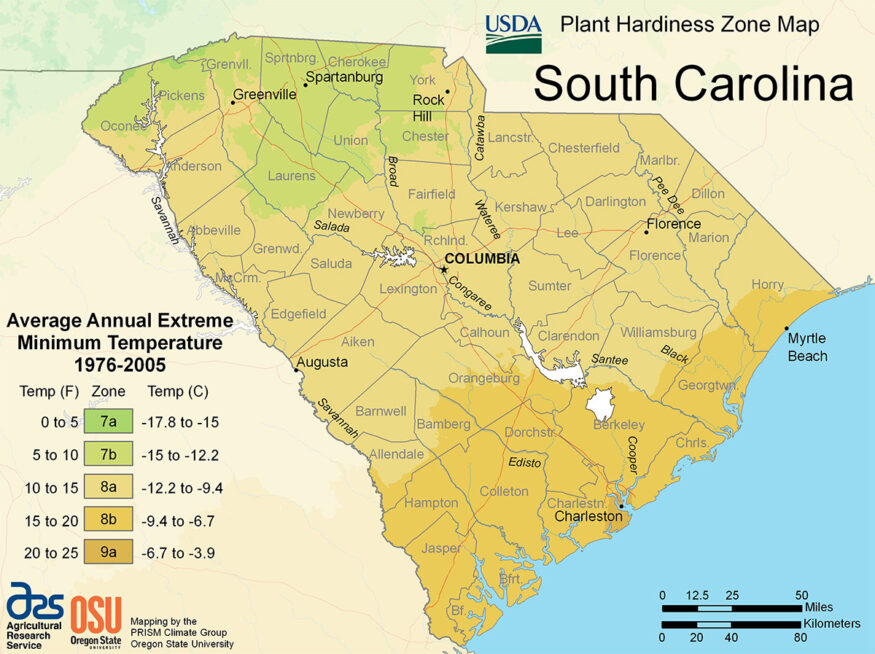South Carolina homeowners looking to create lush, green lawns often face the challenge of choosing the best grass seed for their specific needs. With the state’s variable climate and varied soil types, selecting the appropriate grass variety can make a significant difference in the overall health and appearance of your lawn. Understanding the advantages and growing requirements of each grass type is essential to help you make the optimal choice for your specific conditions.
So what is the best grass seed for South Carolina? A few popular choices include Bermuda grass, centipede grass, Kentucky bluegrass, and tall fescue (turf type). Each of these grasses has distinct strengths and weaknesses, and by evaluating your lawn’s unique requirements, you can determine which grass type is most suitable for your landscape.
Factors such as the amount of sun, climate, and the desired appearance and function of your lawn will play an essential role in your decision-making process.
Let’s take a look at each type in more detail.
Key Takeaways
- Selecting the best grass seed for your South Carolina lawn requires understanding the advantages and growing requirements of each grass type.
- Bermuda grass, centipede grass, Kentucky bluegrass, and tall fescue (turf type) are popular choices to consider, each offering different benefits depending on your specific lawn conditions and needs.
- South Carolina’s variable climate and diverse soil types play a crucial role in determining the ideal grass variety for your lawn.
[ez-toc]
Bermuda Grass
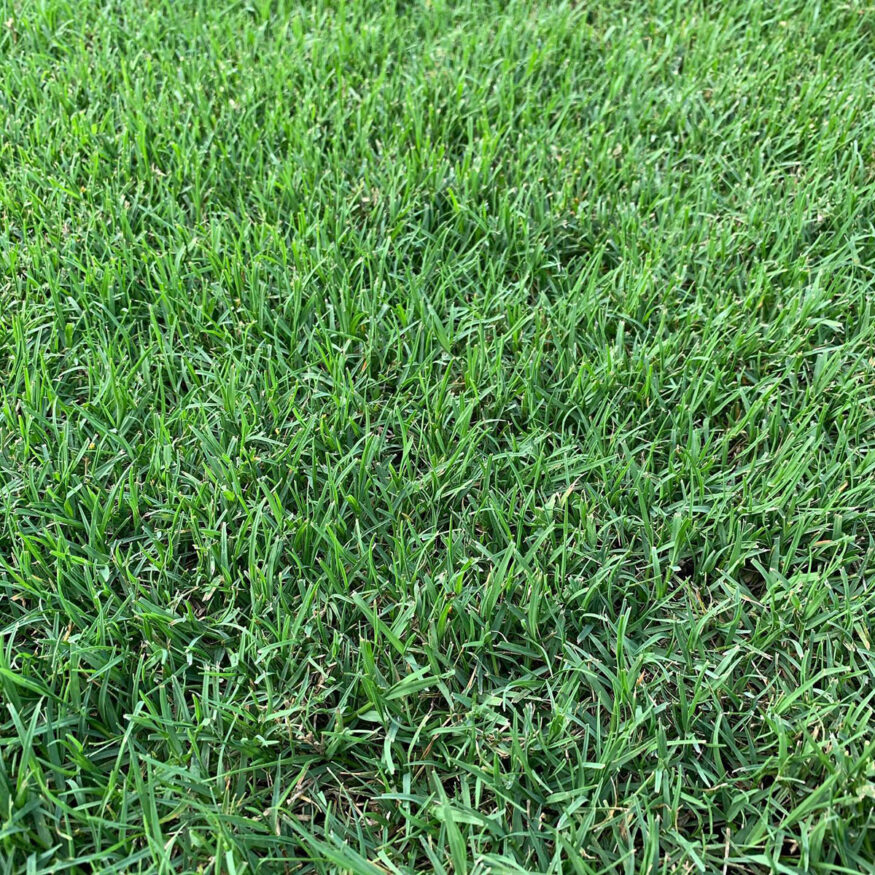 Source: sunny.bermuda on Instagram
PIN IT
Source: sunny.bermuda on Instagram
PIN IT
| Also Known As | Bermuda grass, wiregrass; Cynodon dactylon L. |
| Type of Grass | Warm season perennial |
| Optimal Zones | Southern region |
| Root Structure | Deep |
| Winter hardiness | Poor |
| Heat tolerance | Excellent |
| Shade tolerance | Poor |
| Water Requirements | High |
| Drought Tolerance | High |
| Self Repair Capacity | Excellent |
| Overall Maintenance Requirements | Moderate to High |
Why Bermuda Grass is The Most Popular Choice For South Carolina
Bermuda grass is a great choice for South Carolina due to its ability to thrive in the state’s warm climate. This type of grass, also known as bermudagrass, is a warm season grass that can tolerate sun exposure and requires less mowing compared to cool season grasses. Its heat resistance and low water requirements make it a popular choice for your South Carolina lawn.
In South Carolina, bermuda grass is especially well-suited for coastal areas where the climate is warmer. Its vigorous growth and resilience to drought and disease make it a good option even in the state’s inland regions that experience higher temperatures during the summer months.
One downside to consider is that bermuda grass has a somewhat course texture, which may not feel as soft underfoot as other grass varieties. However, with proper care and maintenance, you can keep your bermuda grass lawn looking healthy and attractive.
To plant bermuda grass, you can either sow seeds or lay sod. For seeding, choose the right amount according to your lawn size and spread the seeds evenly on the prepared soil. Water the area thoroughly and keep it consistently moist until the grass germinates. Laying sod generally delivers faster results but might require professional assistance.
Caring for your bermuda grass lawn includes regular mowing, typically every 7-10 days during the growing season, to maintain a height of about 1-2 inches. Water your lawn when needed, ideally providing 1 inch of water per week to maintain healthy growth.
Fertilizing your lawn in the spring, summer, and fall using a balanced fertilizer can help keep your grass vibrant and green.
By choosing bermuda grass for your South Carolina lawn and following proper care methods, you can enjoy a durable, low-maintenance lawn that flourishes in the state’s warm climate.
Our recommendations for Bermudagrass Seed are:
Learn More: Read our comprehensive state-by-state grass selection guides here.
Looking for the best grass seed for your region?
Our smart lawn plans are designed to work perfectly with your local soil and climate conditions, without any of the toxic stuff.
Use the code EHG20 for an instant $20 discount!
- Personalized lawn care: Custom lawn plans based on soil analysis, climate data, and your specific lawn needs.
- Convenience with a conscience: Products that are not only easy to use but also safe for you, your pets, and the planet.
- Science-backed formulas: Bio-based formulas contain effective, natural ingredients like seaweed, molasses, and iron.
- Expert support: Get one-on-one guidance from a real person and rest easy with Sunday's satisfaction guarantee.
Centipede Grass
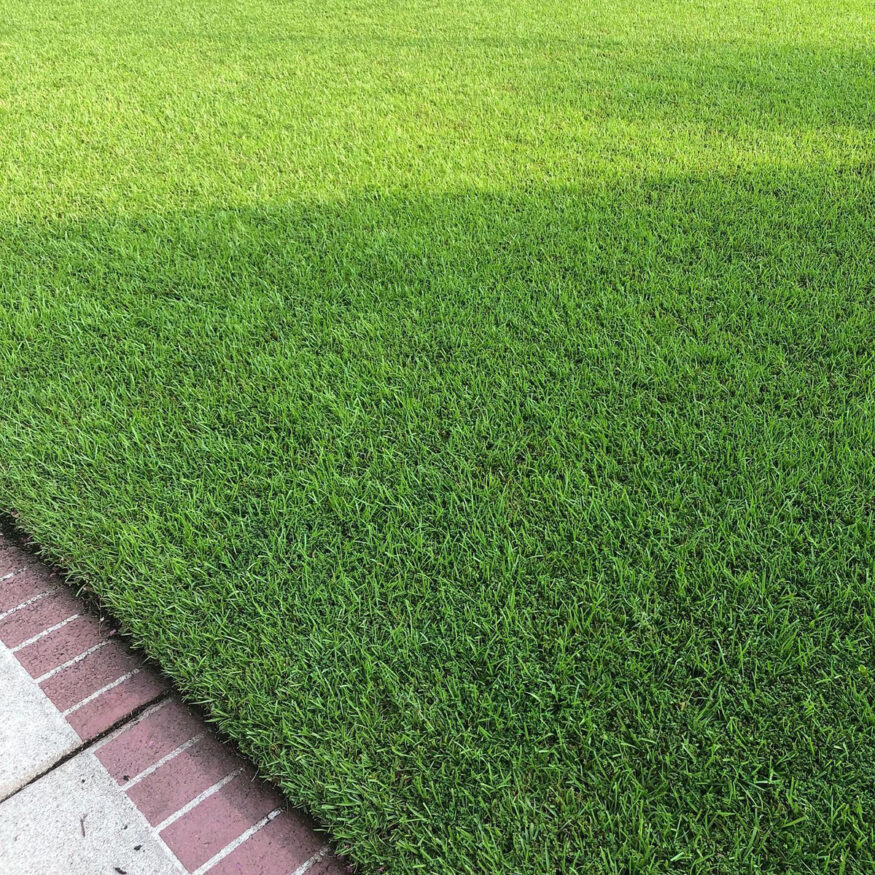 Source: trooperbob_sc on Instagram
PIN IT
Source: trooperbob_sc on Instagram
PIN IT
| Also Known As | Lazy man’s grass; Eremochloa ophiuroides |
| Type of Grass | Warm season perennial |
| Optimal Zones | 7 – 10, South Eastern US; Hawaii |
| Root Structure | Shallow |
| Winter hardiness | Very poor |
| Heat tolerance | Excellent |
| Shade tolerance | Fair |
| Water Requirements | Moderate to High |
| Drought Tolerance | Moderate to High |
| Self Repair Capacity | Poor |
| Overall Maintenance Requirements | Low |
What Makes Centipede Grass A Great Grass For South Carolina
Centipede grass is an excellent choice for homeowners in South Carolina who are looking for a low-maintenance lawn option. This warm-season grass thrives in the state’s climate and is particularly suited to coastal areas with sandy soil.
One of the key benefits of centipedegrass in South Carolina is its drought tolerance. Once established, it stays green even during extreme drought conditions. Additionally, it has a slow growth rate, which means you’ll spend less time mowing your lawn.
Centipedegrass adapts well to a variety of soil conditions, but it prefers well-drained, slightly acidic soil. Keep in mind that it may struggle in heavily compacted or clay soils. To improve your chances of success, it’s essential to prepare your soil properly before planting.
To plant centipedegrass, you can use either seeds or sod. The best time to plant is during the warmer months, from late spring to early summer. Be sure to water the area thoroughly after planting to help the grass establish its roots quickly. Fertilize your new lawn with a starter fertilizer to encourage healthy growth.
Caring for centipede grass is relatively easy, as it requires little fertilization and infrequent mowing. Water your lawn as needed to maintain soil moisture, but be aware that overwatering can cause issues. In general, your centipedegrass lawn will require little attention, allowing you to enjoy a lush and beautiful lawn with minimal effort.
Centipede grass is a great option for SC homeowners looking for a low-maintenance, drought-tolerant grass. With proper planting and minimal care, you can have a beautiful lawn that stays green throughout the year.
Our recommendations for Centipede grass seed are:
Looking for the best grass seed for your region?
Our smart lawn plans are designed to work perfectly with your local soil and climate conditions, without any of the toxic stuff.
Use the code EHG20 for an instant $20 discount!
- Personalized lawn care: Custom lawn plans based on soil analysis, climate data, and your specific lawn needs.
- Convenience with a conscience: Products that are not only easy to use but also safe for you, your pets, and the planet.
- Science-backed formulas: Bio-based formulas contain effective, natural ingredients like seaweed, molasses, and iron.
- Expert support: Get one-on-one guidance from a real person and rest easy with Sunday's satisfaction guarantee.
Kentucky Bluegrass
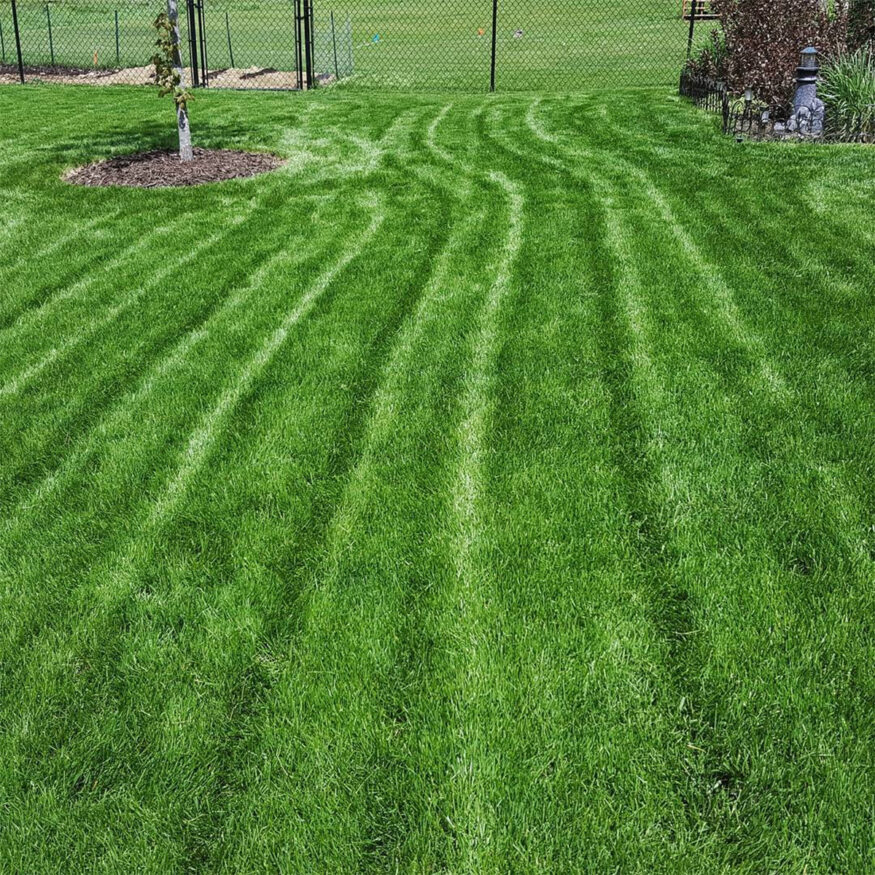 Source: ryanknorrlawncare on Instagram
PIN IT
Source: ryanknorrlawncare on Instagram
PIN IT
| Also Known As | Poa pratensis L. |
| Type of Grass | Cool season perennial |
| Optimal Zones | Northern cool season zone, transition zones |
| Root Structure | Shallow |
| Winter Hardiness | Excellent |
| Shade Tolerance | Poor to Good |
| Water Requirements | High |
| Drought Tolerance | Poor |
| Self Repair Capacity | Excellent |
| Overall Maintenance Requirements | High |
Why Kentucky Bluegrass Grows well in SC
Kentucky Bluegrass is a popular choice among homeowners for its beautiful, lush appearance and durability. In South Carolina, this cool-season grass thrives due to the region’s moist soil and cool to moderate summers.
The climate in South Carolina is well-suited for Kentucky Bluegrass, particularly in the upstate region, where temperatures are cooler. This grass type is known for its shade tolerance, making it a great option for areas with varying sun exposure.
One of the benefits of Kentucky Bluegrass is its ability to recover from damage, thanks to its underground stem system called rhizomes. This makes it more resilient than other grass types and allows it to withstand foot traffic and harsh weather conditions.
However, there are a few cons to consider as well. Kentucky Bluegrass requires more fertilizer than some other grasses, making it important for you to maintain a regular feeding schedule. Additionally, due to its cool-season nature, it tends to struggle in prolonged periods of extreme heat.
When it comes to planting Kentucky Bluegrass, the best time to do so is during early fall or spring, when soil temperatures are ideal for seed germination. To sow the seeds, evenly distribute them across well-prepared and level soil. Lightly rake the seeds into the soil to ensure good contact for successful germination.
Caring for your Kentucky Bluegrass lawn involves regular watering, especially during the establishment phase. You should also mow the grass when it reaches a height of three inches, ensuring not to remove more than one-third of the blade length at a time to prevent stress.
If you’re looking for a durable, attractive grass option for your South Carolina home, Kentucky Bluegrass is definitely worth considering. Keep in mind the necessary maintenance, and enjoy a lush, green lawn throughout the year.
Here are two recommended Kentucky bluegrass seed options available on Amazon:
- Outsidepride Midnight Kentucky Bluegrass Seed Blend
- Jonathan Green Blue Panther Kentucky Bluegrass Grass Seed
Related Article: The best grass types for North Carolina.
Tall Fescue – Turf Type
| Also Known As | Lolium arundinaceum (formerly Festuca arundinacea) |
| Type of Grass | Cool season perennial |
| Optimal Zones | Northern through transition zones |
| Root Structure | Deep |
| Winter Hardiness | Excellent |
| Shade Tolerance | High |
| Water Requirements | Medium to High |
| Drought Tolerance | Excellent |
| Self Repair Capacity | Limited |
| Overall Maintenance Requirements | Low |
Why Tall Fescue Is a Popular Grass seed Choice
Tall Fescue is a cool-season grass that can be grown all over the state of South Carolina. It’s an excellent all-purpose grass that grows well in acidic or alkaline soils.
Drought Tolerance and Suitability Tall fescue grass has decent drought tolerance, allowing it to survive in South Carolina’s occasional dry spells. It’s particularly suited for the central and piedmont areas of the state.
Appearance and Texture Although not the finest-textured grass on the market, tall fescue still offers a lush, green appearance. The wide leaf blades give your lawn a pleasing, “barefoot-friendly” feel.
Mowing Height and Maintenance Your tall fescue lawn will look its best with a recommended mowing height of 2.5 to 3.5 inches. This keeps it dense and healthy, reducing the risk of weed invasion.
Pros:
- Adaptable to various soil types
- Good drought tolerance
- Lower maintenance than other grasses
Cons:
- Less fine-textured than some grass types
- May struggle in extreme heat
Planting Tall Fescue Grass To plant your tall fescue lawn, prepare your soil by removing any existing vegetation and tilling to a depth of 3-4 inches. Then, spread the grass seed evenly and water regularly until established.
Caring for Your Tall Fescue Lawn To properly care for your tall fescue lawn, make sure to water it deeply and infrequently, about once a week, providing approximately one inch of water. Use balanced fertilizer to maintain the grass’s overall health and color.
Tall fescue grass is a versatile and low-maintenance option for many homeowners in South Carolina. By properly planting and caring for your tall fescue lawn, you can enjoy a beautiful and resilient green space.
Check out these two Tall Fescue options that we have had good results with:
- Pennington The Rebels Tall Fescue Grass Seed Mix
- Premium Oregon Grown Kentucky 31 Tall Fescue Grass Seed
South Carolina’s Climate And Growing Challenges For Lawns
Climate
South Carolina has a humid subtropical climate with hot summers and mild winters, making it more suitable for warm-season grasses.
High humidity can create challenges, such as increased disease pressure. To combat this, choose grass types with good disease resistance and ensure proper lawn maintenance.
Soil Conditions
Your lawn’s success depends on the soil type. South Carolina has a wide range of soil conditions, but sandy soils are most common.
Since sandy soils drain quickly, they require more frequent irrigation. You can improve the soil structure by adding organic matter, such as compost, to retain moisture and nutrients.
Weeds
Weed control can be a challenge due to the warm climate. Practice good lawn care, such as mowing at the correct height and regular fertilization, to promote a healthy turf that can outcompete weeds. Additionally, using pre-emergent herbicides can help prevent weed growth.
Pests and Diseases
Common pests include grubs, chinch bugs, and mole crickets. Monitoring your lawn for signs of pests and using targeted treatments can minimize damage.
Diseases like brown patch and dollar spot can be managed by maintaining appropriate watering, mowing, and fertilization practices.
Other Challenges
Drought and cold tolerance are concerns for South Carolina lawns. Choose grass varieties with good drought tolerance, such as Bermuda or Zoysia grass, and irrigate efficiently.
For cold tolerance, consider overseeding your warm-season grass with a cool-season variety in fall to maintain green color during winter months.
Looking for the best grass seed for your region?
Our smart lawn plans are designed to work perfectly with your local soil and climate conditions, without any of the toxic stuff.
Use the code EHG20 for an instant $20 discount!
- Personalized lawn care: Custom lawn plans based on soil analysis, climate data, and your specific lawn needs.
- Convenience with a conscience: Products that are not only easy to use but also safe for you, your pets, and the planet.
- Science-backed formulas: Bio-based formulas contain effective, natural ingredients like seaweed, molasses, and iron.
- Expert support: Get one-on-one guidance from a real person and rest easy with Sunday's satisfaction guarantee.
Frequently Asked Questions
Questions
